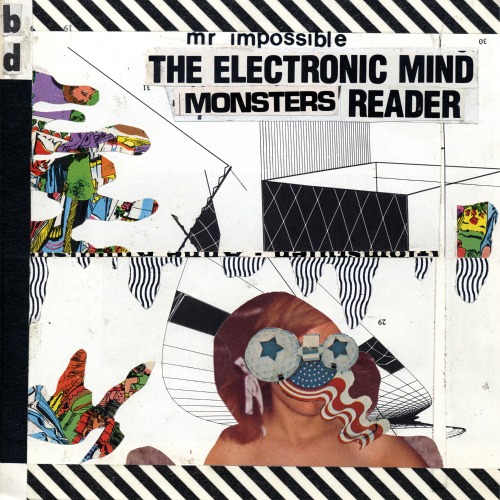In terms of sonic evolution, I see parallels between Black Dice and Japanese noise collective Boredoms. Both groups began by producing abrasive, almost nonmusical noise rock; over time, both mellowed their styles and drew upon psychedelic, drone, and raga influences while retaining remnants of the frayed harshness that defined their earliest recordings.
The key difference, of course, is that while Boredoms seem to have stopped making music (under that name) whereas Black Dice continue to record. The latter band now comprises a trio whose latest record, Mr. Impossible, is almost certainly their most accessible and — dare I say — poppy to date.
I mean, most people wouldn’t exactly consider “The Jacker” to be a pop song proper, but the melodic riffs, steady beat, and marked lack of screech-singing signal both a natural evolution of the band’s trademark hyperactive sound as well as a stylistic departure several years in the making. In this light — a pared-down group making more accessible and perhaps “traditional” music than the earlier band which spawned them — Black Dice circa 2012 are more analogous to OOIOO, the Boredoms side project started by drummer Yoshimi P-We that in many respects has grown into an experimental/psychedelic entity in its own right that differs from Boredoms’ output, but is no less engaging. Yet, regardless of how less absolutely insane their music may be, it’s not hard to see how the ladies of OOIOO fit into the broader Boredoms M.O.
Similarly, though Mr. Impossible is their most accessible work to date, it’s still unmistakably Black Dice. The unintelligible chanting of “Outer Body Drifter,” for instance, is nothing new for these guys, though taken together, its rhythmically metered (almost danceable!) beat and junkyard analog electronics would have sounded out of place on, say, Beaches and Canyons or Creature Comforts. Meanwhile, “Spy vs. Spy” has a hypnagogic air about it that recalls the more R&B-inflected moments of James Ferraro or Ariel Pink. And tracks like “Shithouse Drifter” aren’t as grimy as their titles might leave you to believe; if anything, they display a seemingly improvisational curiosity not unlike that of free-jazz group Exploding Star Orchestra (or its offshoot Chicago Underground Duo). To my relief, this slightly sleeker style never seems forced or ill-fitting; in fact, by the time a sax unexpectedly chimes in on “Carnitas,” it’s hard not to find such instrumental embellishments strangely endearing. I doubt “endearing” is a term many would have used to describe Black Dice ten years ago.
Sure, some Black Dice fans will continue to pine for a return to the band’s earliest hardcore recordings. They’re entitled to their opinion, of course, but it would be a shame to miss out on Mr. Impossible because of whatever notions of aesthetic “purity” or “authenticity” you might carry. Black Dice may be growing a bit softer in their (relatively) old age, but they’re certainly no less interesting.

